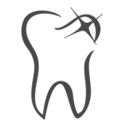
VISITING HOURS:
Week Days - 9 am to 8 pmSundays - Only Emergency Cases
All you need to know about Teeth Deep Cleaning and When You Need It
You follow a ‘proper’ dental hygiene regime. Brush your teeth, once in the morning, and maybe at night too. You do not have visible signs of dental caries or tooth decay. And you think your teeth are fine. Well, you are not alone; most of us believe that brushing once or twice a day is enough to maintain optimum dental health. How wrong we are.
There is so much happening inside your mouth that you know nothing of. Unknown to you, your mouth is host to millions of bacteria, some good, most bad. These invisible parasites, live in the crevices of your mouth and teeth and slowly destroy them. Yes, they are the reason for bad breath, plaque, dental caries, gum disease etc.
So, how do you fight these nasties and keep side-effects at bay? The answer to that is through regular dental deep cleaning. Dental deep cleaning is not a do-it-yourself project that you can complete in the comfort of your washroom. It is something that a dental hygienist does, for you. Dental hygienists are trained, and you will require an appointment with them, at a dental clinic for your teeth deep cleaning. And what better dental clinic than Dentique, for the job. It is the best dental clinic in town.
The difference between deep teeth cleaning and regular teeth cleaning
Countless bacteria thrive within our mouth, hiding between the teeth, feasting on the food debris that gets deposited in the gaps. You might believe that regular brushing and flossing is your way of getting rid of them, but the bad news is that pesky little critters find a way to survive the stingiest dental hygiene routines that most of us follow.
Regular teeth cleaning does not remove all the bacteria present in the mouth. The bacteria feed on food particles lodged between the teeth, slowly destroying the enamel (outer protective layer of teeth) and cause tooth decay. They also aid in the build-up of plaque, that hard calcified substance found on teeth, and are the reason behind bad mouth odour. Brushing, flossing and mouthwashes, do not completely eradicate the bacteria from the mouth. That is the reason that a dental check-up becomes essential to ensure dental hygiene.
Regular visits to the dentist ensure that your teeth are always in optimum health. Dental hygienist examines the teeth and gently remove plaque build-up, using specialised tools. The procedure is simple and completed during one session, but regular follow-ups are required, for the continued good health of the teeth.
Plaque destroys the teeth and gums – it generally occurs on the teeth area, closest to the gumline. Over time, plaque calcifies and turns into tartar, which is more damaging. Anyone with signs of gum disease, mainly, bleeding gums, swollen gums, red gums, etc.must visit a dental clinic for advice and action. Gum disease if ignored can lead to periodontal disease. Further, the chances of tooth decay intensify. Eventually, the gums and bone holding the tooth in place become infected, leading to premature falling of teeth.
Timely, deep cleaning of teeth prevents the formation of plaque and tartar and helps keep gums healthy. Studies indicate that dental health affects heart health. There are many studies that show that subjects with infected gums were more prone to heart disease, because the harmful bacteria get into the bloodstream through the gums, and causes irreversible damage to the arteries etc. Dentists take pocket depth readings and x-rays to determine the extent of damage to the teeth. Where damage to teeth and gums is perceptible, the dentist will suggest interceptive gum therapy, as a precautionary measure to stop the infection from spreading further.
To sum it up, regular dental cleaning can be equated to predictive care, as it helps prevent periodontal disease. Deep teeth cleaning, on the other hand, is done to thwart periodontal disease from spreading.

When a dental deep cleaning is needed
There is no fixed schedule for dental deep cleaning. Your dentist or dental hygienist will determine if and when it is required, based on the condition of your teeth and gums. During a dental examination, they examine the gums and look for pockets, larger than 4mm, which are known to cause periodontal disease.
Dental deep cleaning also referred to as gum therapy or periodontal scaling and root planing is dental treatments that concentrate on cleaning the areas between the teeth and gums, right down to the roots. The procedure involves cleaning the sides of the teeth and the front and the back regions, particularly the gumline. That is where the most damage happens – plaque and tartar build-up starts here and extends deep into the root area, weakening the roots and teeth.
As it involves a thorough cleaning of the teeth and gums, the procedure may require multiple sittings, depending on the extent of the damage. The treatment is two-pronged – it treats gum disease and arrests further damage.
Do not ignore pockets larger than 4mm, as they put you at risk of developing periodontal disease. Follow your dentist’s advice and go for teeth deep cleaning treatment. Allowing the teeth and gums to remain untreated will enable the bacteria to play havoc. You will suffer from plaque and tartar, gum disease, mouth odour and bone loss, and also be susceptible to heart disease. Several types of research indicate a connection between the progression of gum disease and diabetes and dementia. Therefore, it is vital to listen to your dentist when they recommend teeth deep cleaning. You will give your health a big boost and prevent the onset of serious ailments.
How much does a dental cleaning cost?
Dental cleaning is not very expensive. The cost may vary depending on the severity of the infection and the number of sessions it requires. If I am to give an approximate range on the cost of a deep dental cleaning, it will be around a couple of thousands. You can choose Dentique, one of the best dental clinic in Kochi for deep teeth cleaning.
However, look at it this way, the cost is but a small fraction of what you will incur if the problem is left unattended. Over time, your teeth will weaken and fall, and you will be more prone to some severe diseases.
OUR
TREATMENTS
TREATMENTS








